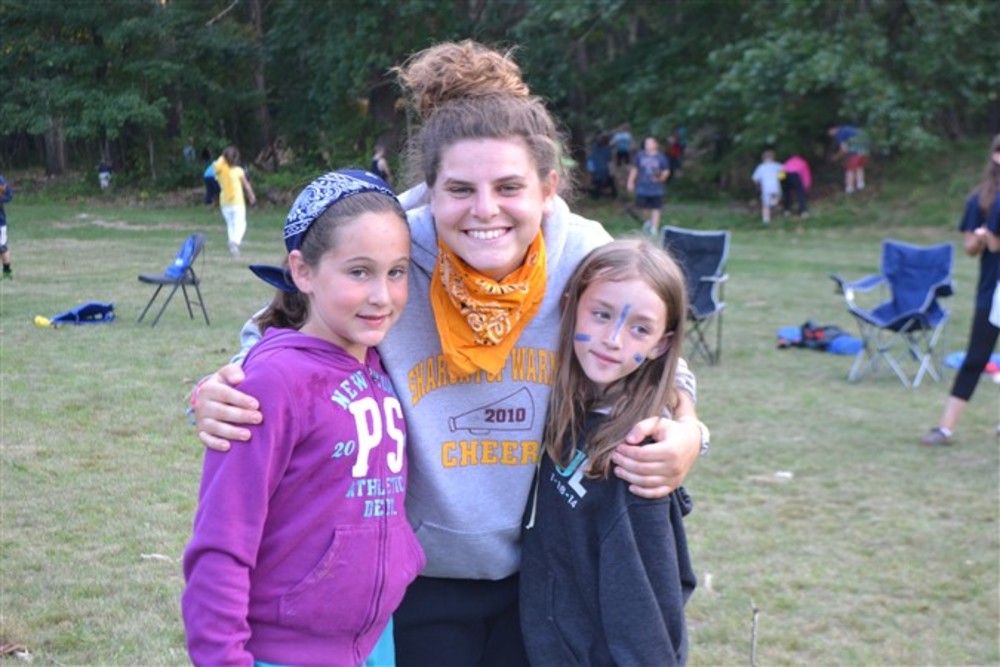The job of a counselor is filled with thanks
 Anna with two campers. /PHOTO | CAMP JORI The pink and blue flowered comforter decorated the frame of the wire cot, but underneath it a squirming figure gloomily hid from the commotion that enveloped the cabin. From my alcove, where the counselors slept, I heard a faint whimper. Sara, a shy, introverted 12-year-old girl, had not only buried herself under the comforter but had also shut the world out.
Anna with two campers. /PHOTO | CAMP JORI The pink and blue flowered comforter decorated the frame of the wire cot, but underneath it a squirming figure gloomily hid from the commotion that enveloped the cabin. From my alcove, where the counselors slept, I heard a faint whimper. Sara, a shy, introverted 12-year-old girl, had not only buried herself under the comforter but had also shut the world out.
Each night, Sara cried into her pillow, adamantly refusing to communicate. Finally one night I woke up around midnight to Sara’s breathing heavily next to my bed. She whispered, “I’m ready to talk,” as she curled up on the edge of my bed. She began to talk, gasping for air between endless streams of consciousness. I tried to comfort her, though I felt helpless as she confided in me her deepest secrets about her relationships with her immediate family. I suddenly realized that at my Jewish overnight camp, not every child came from the same kind of family as I.
Sara’s strength and courage inspired me: at such a young age, she already had experienced more challenges than I had in my entire life. I took Sara under my wing, working with her every day: I read her summer reading book, “I Am Malala,” aloud to her; I found other campers who shared her passion for tether ball competitions; I taught her how to make a string friendship bracelet decorated with hearts; and I sat on the edge of her cot every night until her eyes grew heavy and closed, allowing her misery to float from her mind.
I became the mother figure that Sara so desperately needed, and in the process I learned how to take care of others besides myself. I began to appreciate what I have in life – a secure home and a loving family – from a more adult perspective.
Before my experience with Sara, I had thought my bat mitzvah, marked the end of my childhood. Or, perhaps, graduating from high school and living on my own at a large university might mark the turning point to maturity. But no, I needed just one little girl to inspire me.
This past summer my focus shifted from concentrating on my summer math packet and becoming re-certified in first aid to caring for a child and providing her with a great summer. The first week I worried about checking off every item on my counselor bucket list, 50 activities to be completed before leaving camp nine weeks later. In the first two weeks I had scribbled out the first few items: kayak, see a snapping turtle in the lake, write a letter home, and construct a birdhouse. Before long, 49 of the list’s 50 items were crossed out. The last remaining item: “be a blessing.”
On the final day of summer camp, one by one the cars full of loving parents and family members rushed to embrace their children, load their trunks with luggage, and return to their warm, welcoming homes. Finally, Sara’s aunt arrived, throwing her niece’s half-empty trunk into the backseat and dragging Sara unwillingly back to her reality.
I stood in the middle of my barren cabin, feeling alone yet content that I had helped give Sara what might have been the best summer of her life. Suddenly my counselor bucket list, dangling from a pushpin on the alcove wall, caught my eye. The words “be a blessing” had been crossed out, with two words scribbled underneath: “love, Sara.”
I couldn’t believe she was thanking me for just doing my job, when she had unknowingly given me so much more: the ability to care for others.
ANNA ROSENFELD, a longtime camper at JORI, was a first year counselor in 2014. She is a senior in high school, and this is her college essay. It is reprinted with permission.







